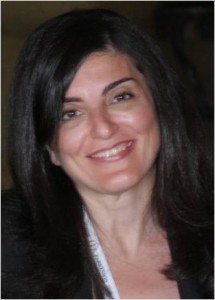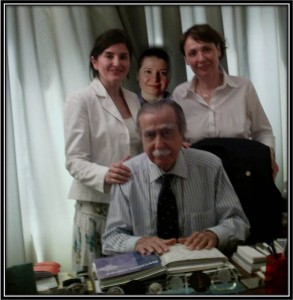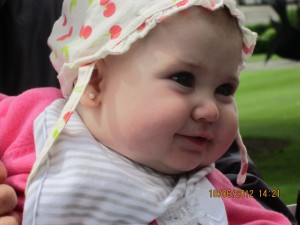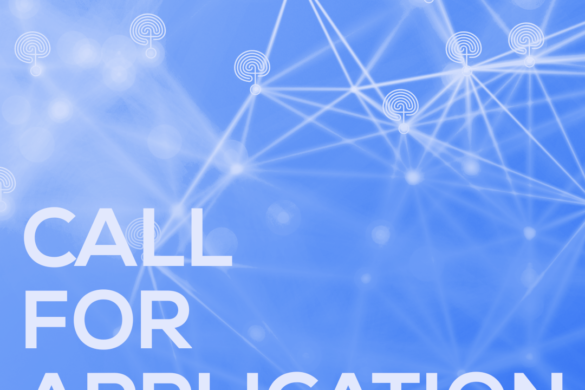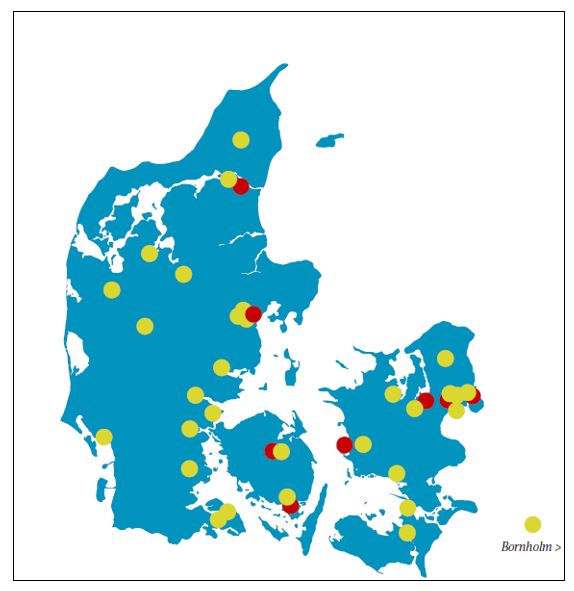The story of neurology dates back to ancient times, perhaps as early as the time when Egyptians used papyrus. It was on this writing material that Egyptians described unconsciousness, quadriparesis and hemiparesis. This is known as the Edwin Smith surgical papyrus. Of note, migraine was another of those neurological conditions described on the Ebers papyrus, named after the dealer who bought it in 1873. It may be said that the seeds of neurology were sown by some valuable sentiments expressed and judgments made in antiquity by Hippocrates, Aristotle, and Herophilos. This was enhanced by Leonardo da Vinci and Rene Descartes in the Renaissance, who studied the physiology of the brain. Studies conducted on the brain became more sophisticated during the 19th century thanks to the meticulous efforts of Golgi, Broca, Brodmann, and Wernicke. In Europe Benjamin Duchenne, Wilhelm Erb, Heinrich Romberg, and John Jackson were those neuropsychiatrists who made a major breakthrough in both adult and child neurology in the 1800s. There are other prominent figures like Swaiman, Adams, Penfield and Carter, in whose studies neurology and child neurology have their roots.
Many more decades had to pass for the time to come when neurology was accepted as a field of specialty. It was the 1930s and neurology was no more a branch of either psychiatry or internal medicine. Then came the recognition by the National Institutes of Health (NIH) in the US in the mid-1950s that there was a need for doctors specially trained in the field of child neurology. Prior to that, children with neurologic diseases were given treatment by doctors of other branches, some of whom were orthopedists or pediatricians intrigued by cerebral palsy, and some were adult neurologists interested in epilepsy. It were the neurosurgeons who cared for children with brain tumors or hydrocephalus. Understanding that children with neurologic conditions needed specialized care, Dr. H. Houston Merritt, director of the Neurological Institute of New York, assigned the neurologist Sidney Carter to handle the children’s service. This was a service started in 1934 by Drs. Bernard Sachs, one of the pioneers of child neurology in the United States whose name should be remembered along with Dr. Frank R. Ford and David B. Clark at Johns Hopkins Medical School in Baltimore. Among all of these trailblazers of pediatric neurology, Dr. Ford surely deserves special mention with his time-honored textbook of child neurology. Dr. Philip R. Dodge and Dr. Raymond Adams are other big names at the Massachusetts General Hospital in Boston who gave their support to the development of this medical profession.
It was the late 1960s when all these efforts made on either side of the Atlantic Ocean had to be put together. This was when child neurologist Dr. Sabine Pelc (1921–1989) of the Free University of Brussels, Belgium burst onto the scene and started a long journey, visiting various European and American countries with the aim of meeting other child neurologists as well as neurologists who mainly dealt with children with neurologic conditions. She then tried to bring all these doctors together in a world-wide forum.
Below are some of the other spearheads of child neurology who also merit special mention: Dr. Ronald C. Mac Keith, a pediatrician in UK who pored over the multidisciplinary care of children with cerebral palsy in the late 1950s; Dr. Albrecht Peiper in Germany and Dr. André-Thomas in France, who took the lead in setting the principles of neurologic examination of neonates, followed by Drs. Claude Dreyfus-Brisac and S. Saint-Anne Dargassies, who furthered these studies to include premature and high risk infants. Dr. Dieter Schaeffer, Dr. F J Schulte, Dr. Folkar Hanefeld and Gert Jacobi are other German child neurologists whom we should give high praise. In Belgium, Dr. Ludo van Bogaert conducted clinical/pathological studies on the CNS diseases of childhood in the Bunge Research Institute in Antwerp. In Brussels Drs. Sabine Pelc, who would later become the matchmaker of pediatric neurologists, taught clinical child neurology together with Dr. Gilles Lyon. The latter of these two physicians and his young colleague Dr. Philippe Evrard are best remembered for their efforts in founding one of the leading academic child neurology services of Europe at the Cliniques Universitaires St. Luc. In Asia and Oceania, Dr. Yukio Fukuyama of Japan was the physician to whom child neurology owes much. His studies on the infantile and childhood epilepsies and his description in 1960 of the congenital muscular dystrophy earned him the position of professorship and Chief of the Division of Neurology at the National Children’s Hospital in Tokyo in 1965. Dr. J. Preston Robb in Canada, who handled the neurology clinic at the Children’s Hospital of Montreal, worked together with Dr. Wilder Penfield in epilepsy surgery. He focused his attention on the training of a large number of child neurologists, particularly those who were interested in epilepsy and genetic disorders.
How to become a child neurologist:
The American Board of Psychiatry and Neurology was founded in 1934. After about three decades, the American Board of Psychiatry and Neurology and American Board of Pediatrics set criteria for eligibility for the dual board examinations in pediatrics and in neurology with special competence in child neurology. The US Accreditation Council for Graduate Medical Education (ACGME) offers 3 pathways to achieve certification in neurology with special qualification in child neurology:
1) 2 years of general pediatric training and 3 years of neurology training (1 year of adult neurology and 2 years of child neurology);
2) 1 year of internal medicine, 1 year of general pediatrics, and 3 years of neurology training;
3) 1 year of pediatrics, 1 year of basic neuroscience research, and 3 years of neurology training.
While the majority of trainees choose the first track, the latter 2 tracks have been added to attract students with a research focus and to encourage adult neurologists who want to join child neurology training later.
A report was published in the 2008 yearbook of “European Union of Medical Specialist (UEMS)”, stating that it was agreed to give training in pediatric neurology within pediatrics, with an equal access for both neurologists and pediatricians. This approach is still valid. In the 2009-2010 training program of “European Pediatric Neurology Society (EPNS)”, the UEMS report was confirmed. Training should start in general pediatrics and/or neurology and be followed by that in pediatric neurology. When national rules allow an entry from general neurology, trainees having completed at least two years of recognized adult neurological training should further their studies in general pediatrics for another year.
In Turkey interest in child neurology goes back to the 1960s. Efforts to introduce child neurology as a separate profession officially began in the following two decades in various medical faculties. In 1971 Prof. Hıfzı Özcan founded the Child Neurology Section in the Department of Neurology, Istanbul Faculty of Medicine. This was soon followed by Prof. Ayfer Ülkü of Ege University, and by Prof. Yavuz Renda of Hacettepe University, who launched the division under the Department of Neurology and Pediatrics, respectively. The Child Neurology Division, operating under the Neurology Department of Ege University, performed comprehensive and longitudinal studies. It is a pity that the division’s functions were later restricted. This was an action of which the medical or legal reasons are still unclear.
In the following years, despite the very existence of the first one launched by Prof. Hıfzı Özcan in the Neurology Department of Istanbul Faculty of Medicine, a second Child Neurology Division was established by Prof. Selcuk Apak in the Pediatrics Department in the same faculty. This was followed by a new division that began to operate under the Neurology Department of Cerrahpasa Faculty of Medicine. This division, under the leadership of Prof. Aysin Dervent, has contributed highly to the acquisition of an in-depth knowledge in child neurology, especially in the field of childhood epilepsy. Her team was comprised of such distinguished academicians as Prof. Cengiz Yalçınkaya, who is experienced in neurometabolic diseases, Prof. Barış Korkmaz, who deals with developmental disorders, and Prof. Veysi Demirbilek, who conducted studies on childhood epilepsies together with Prof. Dervent. The child neurology division, established by Prof. Hıfzı Özcan under the Neurology Department of Istanbul Faculty of Medicine, has now been taken over by Prof. Mefkure Eraksoy, Prof. Zuhal Yapıcı and Dr. Pınar Tekturk, and has become one of the few centres for childhood white matter disorders/multiple sclerosis, movement disorders, and neurocutaneous disorders.
In 1983, the regulations on specialist training in medicine were determined in the Medical Specialization Code, which made training in child neurology possible either after the training period in neurology or pediatrics. Unfortunately, the Code was amended in 2002 and child neurology training could no more be carried out in neurology departments. Turkish Neurology Association and some individuals brought the case to court. Though the cases were won in 2003 and 2010, it was politically and unintelligibly decided in 2011 that neurology departments cannot conduct in child neurology training. This unfair decision hinders the progress of neurologists and denies neurology residents their right to get in child neurology training. It is really difficult to understand how and why a right already given to neurologists is now denied. Training in child neurology is, for the present, a privilege granted to pediatricians because they can carry it out without any further studies in a neurology department. This is both against the description of child neurology and the history of its progress.
There is a universal motto repeated in each issue of the Handbook of Neurology since 1931: “Neurology is the science of the structure and all of the actions of the nervous system in health and in disease, in man and in animals, in the fetal, the infantile and the adult organism.” It may be that child neurology was developed in the departments of pediatrics in some European countries. Nevertheless, training and research into the disorders of the immature brain are inherent in neurology and neurologic education. As is well-known by physicians who have chosen to work with infants and children, it is difficult to get adequate education in child neurology without the supervision of and support from mainstream neurologists and basic scientists of neurology.
The rate of population below the age of 18 in Turkey is quite high (31%). That of consanguineous marriages is also high (25%) throughout the country and even higher in some regions, reaching a level of up to 40%. This, in turn, increases the incidence of genetic-metabolic neurological diseases. Of note, Turkey has, for the past five years, been offering health care service to an increasing number of people from some northeastern countries (Azerbaijan, Turkmenistan), eastern countries (Iran, Afghanistan) and southeastern Arabian countries. In developing countries, fully trained, qualified child neurologists and diagnostic facilities are relatively limited. The President of Child Neurology Society, Prof. Dr. S. Roach declared that there is a need for child neurologists even in the USA. “The practice of child neurology has changed dramatically in recent years, but the rules governing our training programs, and the curriculums they offer have remained relatively static” were his words published in the 2012 newsletter of the Society.
It may be that at present we are child neurologists having received training in different departments in Turkey. But we should now unite our forces to achieve two aims: to bring the primary care level up to neurological disorders; to promote clinical research into the field of child neurology. So, improving the academic skills of general practitioners should be another goal for us. There is a growing and worldwide demand for qualified child neurologists both in the clinic and in the lab. In order to combat with the many challenges that child neurology is currently facing, we should seek globalized training schemes, and create clinical guidelines, consensus statements, and management protocols.
The bureaucratic interference that we experienced in Turkey in 2011 was unfortunate. But we believe that modernity and forward-thinking will be reflected in the decisions to be taken by the Turkish bureaucracy in the future. We also hope that in the Year of the Brain 2014 , training standards of neurology and child neurology as well as all other branches will be improved. We would certainly be pleased to see ICNA and EPNS on our side when trying to achieve these goals. Taking the opportunity that Year of the Brain is offering us, we should work harder to improve child neurology training in every way that we can.
References:
1. Brouwer OF, Palm L. European Paediatric Neurology Training Programme (2009) 1-10.
2. Curatolo P. Education in Child Neurology: The Role of the International Child Neurology Association (ICNA). J Child Neurol special article, 12 Nov (2010) 1-7.
3. Maski KP, Jeste SS, Darras BT. Child Neurology: Past, present, and future. Neurology 74 (2010) 17-19.
4. Newton CR, Neville BG. Paediatric neurology: advances on many fronts. Lancet Neurol 8 (1) (2009) 14-15.
5. Painter JM, Capute A, Accardo P. Subspecialization in the Care of Children with Neurodevelopmental Disabilities J Child Neurol 16 (2001) 131.
6. Population analysis of children and young people in Turkey (Turkish) (unicef-2012): http://panel.unicef.org.tr/vera/app/var/files/s/i/sitan-tur-final-2012.pdf
7. Rapin I. Child Neurology. Eur J Neurol 11 (2004) 213-215.
8. Rapin I. The International Child Neurology Association: the first 25 years. Brain & Development 21 (1999) 3-15.
9. Report of the UEMS, Section and Board of Neurology: UEMS Yearbook (2008) 77-84.
10. Roach ES. From the president, Training for he future, not the past. Child Neurology Society Newsletter 20 (1) (2012) 2-3.
11. Zülch KJ. The place of neurology in medicine and its future; Handbook of Neurology, Vinken & Bruyn eds. North Holland Publishing Company, Amsterdam Vol I (1969) 1-44.
Professor Zuhal Yapici works at the Istanbul University, Faculty of Medicine, Department of Neurology, and is also Head of Division of Child Neurology

